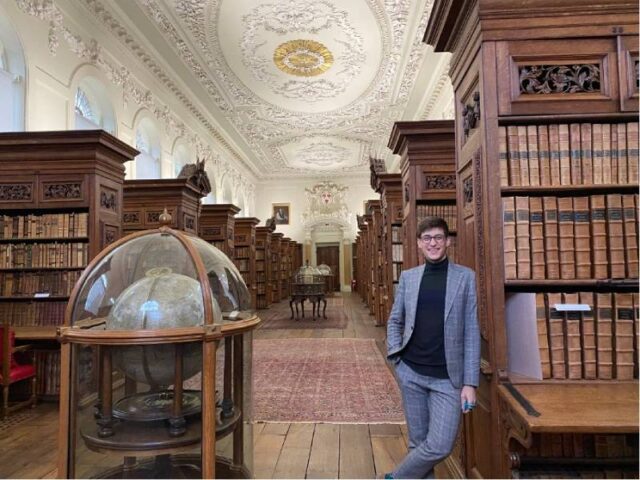The ongoing conflict in Syria has had tremendous destructive impact on the healthcare system in the country. However, even before the country plunged into a civil war, the healthcare system of the country was very limited in regards to its healthcare research capacity. Healthcare research capacity is important because it informs evidence-based healthcare policy and identifies gaps and challenges in the healthcare system. In 2011, the number of total healthcare and non-healthcare scientific publications originating from Syria (a population of 20 million) was 269 publications, compared to 874 publication from the neighbouring Lebanon (a population of 6 million) and to 15,800 publications from Belgium (a population of 11 million). The conflict has only made the situation worse wiping out the minimal research capacity the system had. This situation, though challenging, presented social entrepreneurs and medical professionals with a challenge—rebuilding the Syrian healthcare system and building it better. MED Research Team is one of the organisations doing their part in rebuilding the Syrian healthcare infrastructure.
Its founder, Dr Alexey Youssef, is a medical doctor, Oxford-trained healthcare systems specialist, data scientist and the first Syrian Rhodes Scholar. While studying medicine in Syria during the civil war, Dr Alexey Youssef recognised the lack of clinical research support and decided to set up MED Research Team to address the issue. MED builds healthcare research capacity through establishing research collaborations between Syrian researchers and international experts and through facilitating access to healthcare research education. MED brings medical professionals together to promote medical research and education in Syria and collaborate on a number of projects aimed toward rebuilding the Syrian healthcare system. The goal of the organisation is to shine light on the challenges and gaps in the healthcare system in Syria and build local research leaders who can address the challenges of the present and build the future.
MED Research Team collaborates on healthcare research with some of the leading institutions around the world. The organisation was the first to publish comprehensive data on Antimicrobial Resistance in Syria, an issue that has been the focus of many health experts, researchers and international organisations like the WHO. This study was published in one of the most prestigious infectious diseases journals, The Journal of Infection. Through this study, MED Research Team collaborated Antimicrobial Resistance experts from the American University of Beirut and Imperial College London, which is a testament to what they have been able to achieve through collaborations with leading institutions.
Education is at the core of MED’s mission statement. They publish educational material for the healthcare workers to raise the standard and accessibility of healthcare research education in Syria. Through their collaboration with the Boston University, MED Research Team translates Boston’s courses into Arabic and offers them for free on their website. By learning in their native language, Syrian healthcare workers are no longer hindered from acquiring international-standard medical skills due to linguistic barriers. By offering the courses for free, MED Research Team ensures that the educational material is accessible to every healthcare worker regardless of their purchasing power.
MED Research Team is in the process of launching ‘The MED Fellowship’, a special micro-grant program for young healthcare researchers in Syria. The grants will be distributed through a competitive process to encourage medical research in the country so that this medical knowledge could be used to rebuild the Syrian healthcare infrastructure.
MED Research Team is connecting the Syrian healthcare workforce to expertise, education, experts, and institutions around the world. By mobilising the young healthcare workforce and nurturing local research leaders and champions, MED Research Team is working towards its vision of building healthcare research capacity in Syria. Supporting research is critical to ensure that the healthcare system in Syria is rebuilt on an evidence-based structure so that it not only provides healthcare services to the Syrian people but also plays its role in the collective advancement in the field of medical research and furthering our understanding of the healthcare impacts of the 10-years long humanitarian crisis and conflict.
(Syndicated press content is neither written, edited or endorsed by ED Times)
Read more:
Ajinomoto Is Not Toxic, Non-Veg And Doesn’t Cause Heart Attacks
































